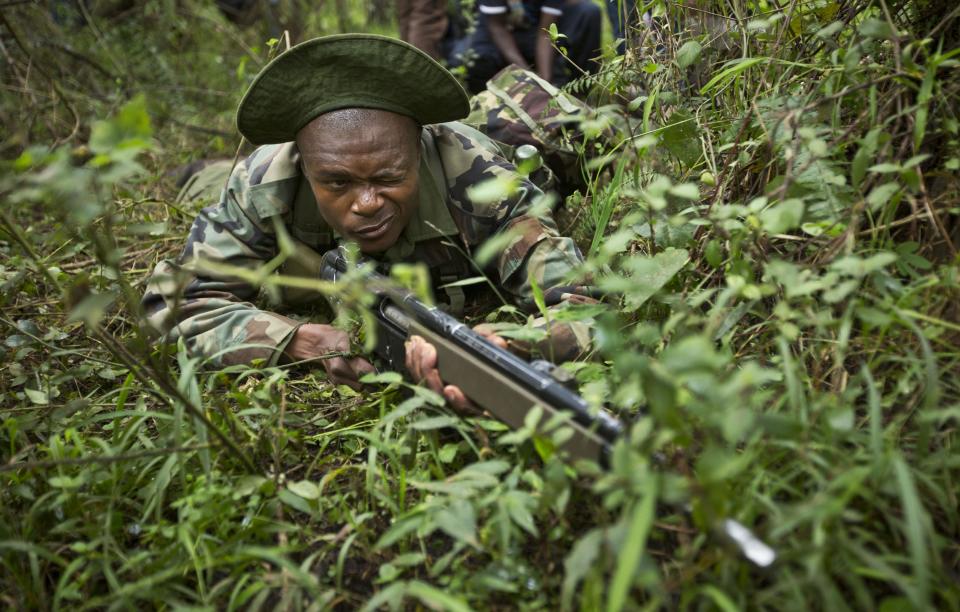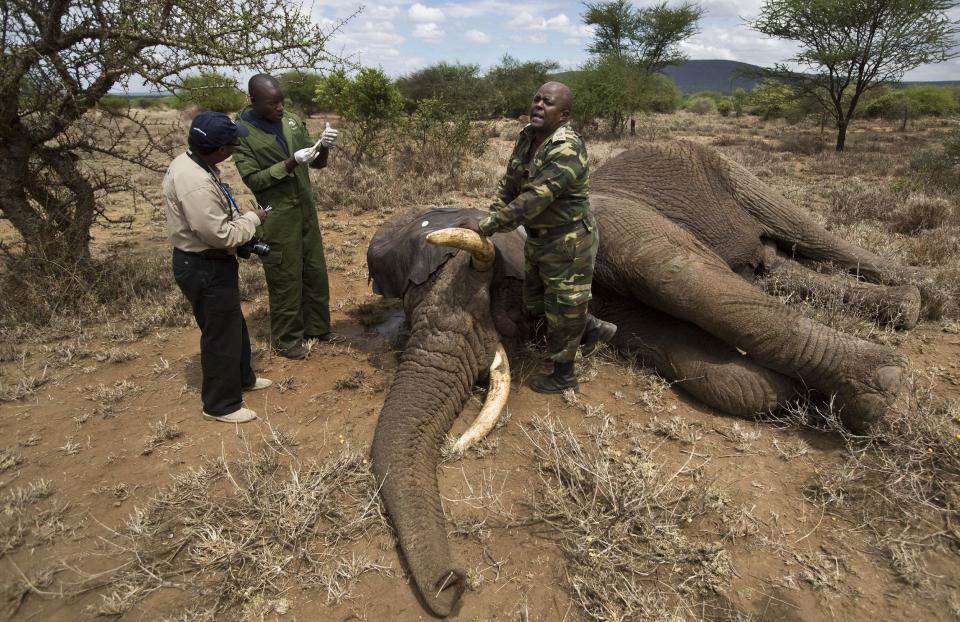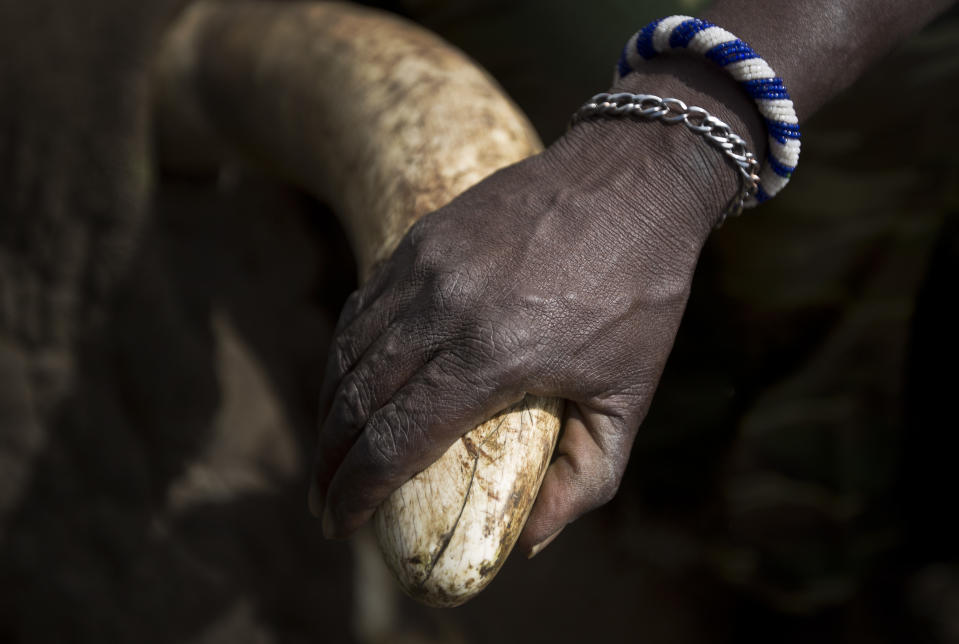Kenya gov't to oversee wildlife authority actions
NAIROBI, Kenya (AP) — Kenya's central government will oversee the running of the country's wildlife authority for the next three months in a bid to stop poaching of the country's elephants and rhinos, an official with the Ministry of Environment and Natural Resources said Friday.
Richard Lesiyampe said six senior Kenya Wildlife Service officials have been placed on leave to pave the way for investigations into the wildlife service's operations.
Among those sent on leave is the senior deputy director in charge of conservation, Patrick Omondi, who is also known as "Elephant Man" in Kenya for his top level expertise. Omondi is a leading international campaigner against the trade in elephant ivory and rhino horn.
The Kenya Wildlife Service's intelligence unit will be restructured and 50 four-wheel drive vehicles added to the fleet to increase mobility of rangers protecting wildlife across the country, Lesiyampe said, adding that 600 additional rangers will be recruited next week.
Last month Richard Leakey, a famed scientist and founding head of the Kenya Wildlife Service, alleged that the service had been infiltrated by powerful people enriching themselves from poaching. He urged the government to overhaul the service's management.
Despite putting six officials on leave, Lesiyampe said there was no evidence linking powerful government officials to the poaching menace
Poachers have killed 18 rhinos and 51 elephants so far this year. Last year 302 elephants were killed in Kenya, down from 384 in 2012, out of an estimated population of 35,000, according to wildlife service statistics. Last year 59 rhinos were killed up from 30 in 2012.
The official number of elephant deaths given by the Kenya Wildlife Service does not indicate a crisis. But Leakey and Paula Kahumbu, the chief executive of the group Wildlife Direct, said last month they believe Kenya is losing many more elephants.
Lesiyampe said Kenya Wildlife Service statistics on elephants and rhino populations are correct and have been audited by the International Union for Conservation of Nature.
Demand for ivory from China's rising middle class and demand for rhino horn in Vietnam are imperiling two of Africa's most iconic creatures.
Kenya has said that demand for Ivory had been fuelled of the partial lifting of an international ban on ivory trade to allow some countries that have accrued stockpiles elephant tusks to sell them off.





